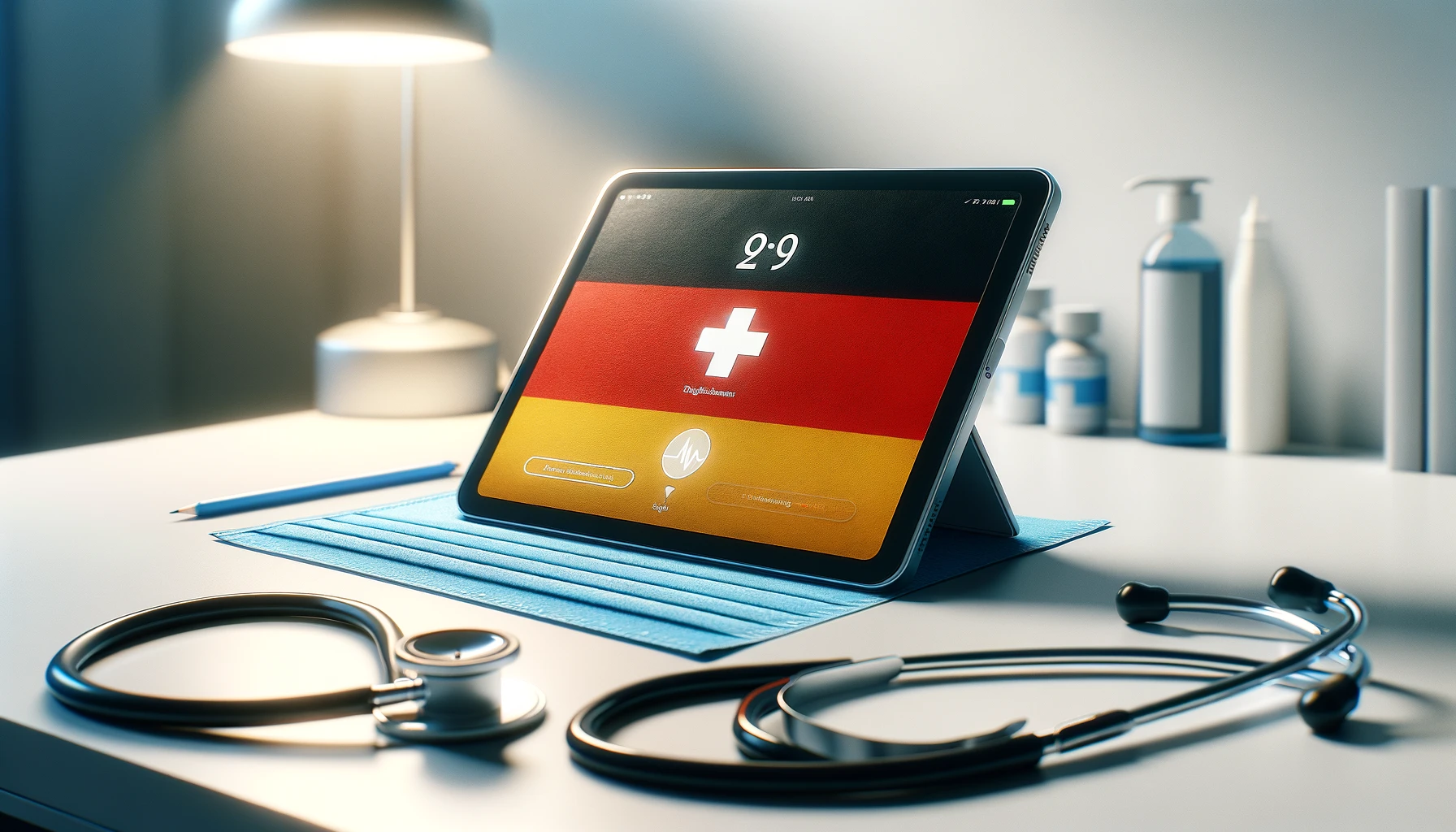Articles & News
- Accueil
- Blog
10. avril 2024
EU-Policy
Navigating Digitalisation – Challenges and Progress in German Healthcare

Introduction
As German healthcare dives into the digital revolution, it’s facing big hurdles. Upgrading technology, ensuring patient and healthcare providers (HCPs) participation, and guaranteeing broad accessibility to new digital tools are central to this journey. Additionally, navigating the legislative landscape, such as adapting to the Digital Healthcare Act, presents its own set of challenges, demanding a delicate balance between innovation and compliance.
Recent developments in German healthcare infrastructure and technology
The digital transformation of Germany’s healthcare system is progressing, with a strong focus on enhancing digital infrastructure and technology to meet the needs of healthcare providers and patients. The introduction of the Digital Healthcare Act (DVG) in 2019 marked a significant step towards integrating digital solutions into daily healthcare practices, such as enabling doctors to prescribe healthcare apps supported by statutory health insurance.
The telematics infrastructure (TI) plays a crucial role in this transformation, serving as the digital backbone by connecting over 90% of general practitioners, as well as a high percentage of dental practices, pharmacies, and hospitals. This network aims to facilitate secure and efficient patient data exchange across the healthcare spectrum. Despite these advancements, the transition to seamless digital data exchange between hospitals and outpatient physicians faces challenges, with a substantial portion of communication still reliant on paper-based processes.
However, the eHealth Monitor 2021 report by McKinsey indicates that the adoption of digital infrastructure by physicians has significantly increased, with an emphasis on electronic health records and e-prescriptions supported by new legislation. The new legislations, namely the Digital-Act and the Health-Data-Usage-Act has been substantial in introducing broader digitalisation into the German healthcare. The former legislation focuses on the implementation of an electronic patient record, making it easier for doctors to review patients’ digital history. However, this will not be implemented until 2025 and roll-out will be mostly for people with statutory health insurance. The latter aims to improve the accessibility of health data for research, including use of anonymous data from electronic patient files, billing data of health insurance companies and information from the cancer registry.
While Germany is taking major steps in digitalizing the healthcare delivery through appropriate legislation and funding initiatives, it faces ongoing challenges in fully capitalising on the benefits of digital healthcare.
Barriers in digitalising German healthcare
Despite nearly all German hospitals being connected to the telematics infrastructure, a digital maturity assessment by DigitalRadar revealed that hospitals scored an average of 33 out of 100 points, indicating much room for improvement in areas such as information exchange, interoperability and patient participation.
Patient participation and uptake have been particularly slow. A 2022 survey showed that while there’s interest in using digital health tools such as online booking and e-prescriptions, there is less interest in other areas of digital health solutions such as online well-being programs and online consultations.
The challenges being experienced by low patient participation and interest in digital platforms expand to research and development. While there’s been a substantial increase in German research publications on e-health, indicating a growing interest and recognition of the benefits of digital health solutions, the actual application of these innovations in clinical settings lags, particularly in comparison to countries like the United Kingdom, where benefits of digital healthcare is well utilised.
A report looking at the Digital Health applications (DiGAs) found that 44% have not prescribed DiGAs to their patients due to lack of knowledge and accessibility. Therefore concerns persist on the healthcare system’s readiness to adopt new digital tools, particularly on how well these tools are understood and used by HCPs, who are yet to receive comprehensive training and time to integrate digital healthcare into their daily work.
Next Steps for German healthcare
The COVID-19 pandemic has accelerated the deployment and patient acceptance of digital health solutions, such as telemedicine and online booking, highlighting the potential of digital technologies to enhance healthcare delivery.
Germany’s healthcare digitalization, marked by the Digital-Act and DiGAs highlight the efforts to adopt digital infrastructure more broadly and improve healthcare delivery. The digitalisation of healthcare can be expected to improve the detection and diagnosis of diseases, enable individuals to participate and be well-informed on their conditions and treatment opportunities and have better access to healthcare support. However, there are major barriers to achieving this, both from the patient view and the HCPs, where participation remains significantly low and digitalisation still seems a very alienated area.
Author:
Smriti
Singh
Publications récentes
-
 15 Juil 2024Navigating Discontent: Greek Parties Reframe European Election Results
15 Juil 2024Navigating Discontent: Greek Parties Reframe European Election Results -
 26 Juin 2024Shaping the Ballot: The Influence of National Issues on Spain's European Election Results
26 Juin 2024Shaping the Ballot: The Influence of National Issues on Spain's European Election Results -
 21 Mai 2024Local Elections in England: an impending change of direction in UK health policy?
21 Mai 2024Local Elections in England: an impending change of direction in UK health policy? -
 25 Avr 2024Navigating Slovakia's Political Maze: Disinformation, Power Plays, and the Road Ahead
25 Avr 2024Navigating Slovakia's Political Maze: Disinformation, Power Plays, and the Road Ahead -
 10 Avr 2024Navigating Digitalisation - Challenges and Progress in German Healthcare
10 Avr 2024Navigating Digitalisation - Challenges and Progress in German Healthcare
